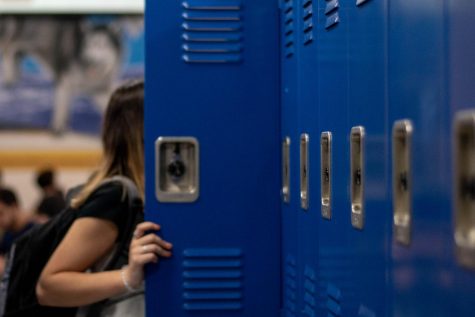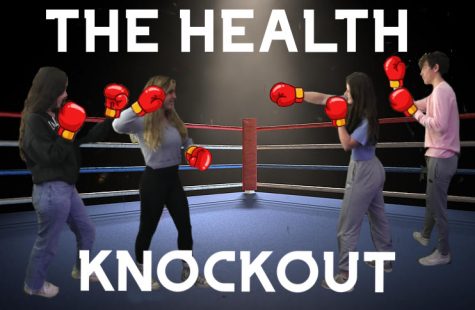Got Ink: A student’s thoughts on accepting tattoo culture
Naperville North Spanish teacher Leslie Conte-Russian never thought as a child that she would get a tattoo. Her parents’ straight-laced ideals and not knowing of anything she would want on her body forever, a tattoo had been the furthest thing from her mind.
After her grandparents passing, Conte-Russian had an inspiration for a first tattoo.
“When my grandparents died I had a hard time, so I was like I bet they were reincarnated into Hummingbirds,” said Conte-Russian.
As this symbol became a kind of family joke, she decided that this was something that would always have meaning to her and she loved all the colors that she could incorporate. She said that if she’s ever having a bad day, she can just look down at her ankle.
While this tasteful ankle tattoo didn’t have a lot of impact on Conte-Russian at work, according to Skinfo 42% of people of all ages feel that visible tattoos are inappropriate in the workplace. On an even wider spectrum, 63% of people 60 years and older feel that tattoos are inappropriate, while only 22% of people 18-25 years old feel the same way. Does this trend mean that by the time the younger generations enter the workplace, the negative stigma behind tattoos will be a thing of the past?
I hope so. Adults need to become more accepting of younger people with tattoos, especially in this progressive time.
For many people, tattoos are a kind of art form that they use as outlets to express themselves and commit to grounding messages. A more traditional adult who criticizes another person due to their choice in tattoo, can come off as judgmental or even insensitive to the value that it has to that person.
The most common things adults will say to younger people about tattoos is: Don’t get them while you’re young, you will have it forever!
As if this wasn’t already blatantly obvious to someone who has thought long and hard about it, that is the whole point of getting the tattoo.
Naperville North social studies teacher, Kermit Eby, has several well detailed tattoos including a Black Panther on his forearm and the Tree of Life on his bicep. Eby said when he was in high school it was required for teachers to wear suits, girls to wear dresses, and it was so radical for an African-American to be on TV. He thinks that this same concept applies to tattoos becoming more mainstream, and how they have nothing to do with professionalism.
“I don’t know how it (my tattoos) affected other people but it didn’t affect me because I didn’t change. I was just wearing a symbol. I am not responsible for other people’s view of it,” Eby said.
The Instructional Coordinator of the Career and Technical Education Department, Jay Wachtel, had a similar mindset. Along with different committees, Wachtel helps interview teachers for positions in his department with a series of standard interview questions. He says that he has held interviews with potential teachers who have had visible tattoos, but he likes to think of himself as open minded. He doesn’t feel it’s influenced his hiring decisions.
“When I’m interviewing a parent, I’m thinking about students and parents like the customers of our school. So if someone comes in and they smell really really bad or are dressed inappropriately or they have some physical piercing… I need to be thinking about if they would be able to effectively teach and communicate to kids or if kids would be distracted by that,” said Wachtel.
Wachtel believes there is a time and a place for everything, and of course there are all different kinds of tattoos and tattoo placements that may not be the best in certain professional settings. But for the most part, Wachtel agrees that in this time period people need to start becoming more accepting of how others express themselves.
In Illinois, it is illegal for someone under 18 to get a tattoo even with parent consent. Although I think that there are scenarios where a tattoo at 16 or 17 could be meaningful and grounding, I am not calling for a revolution among underage teenagers. I think there would be an obvious problem with kids having unlimited ability to get tattoos at very young ages.
However, as this generation enters the workplace, a new kind of perspective on tattoos will be in place and hopefully people of all ages will be able to freely express themselves without the burden of a judgmental workplace.









